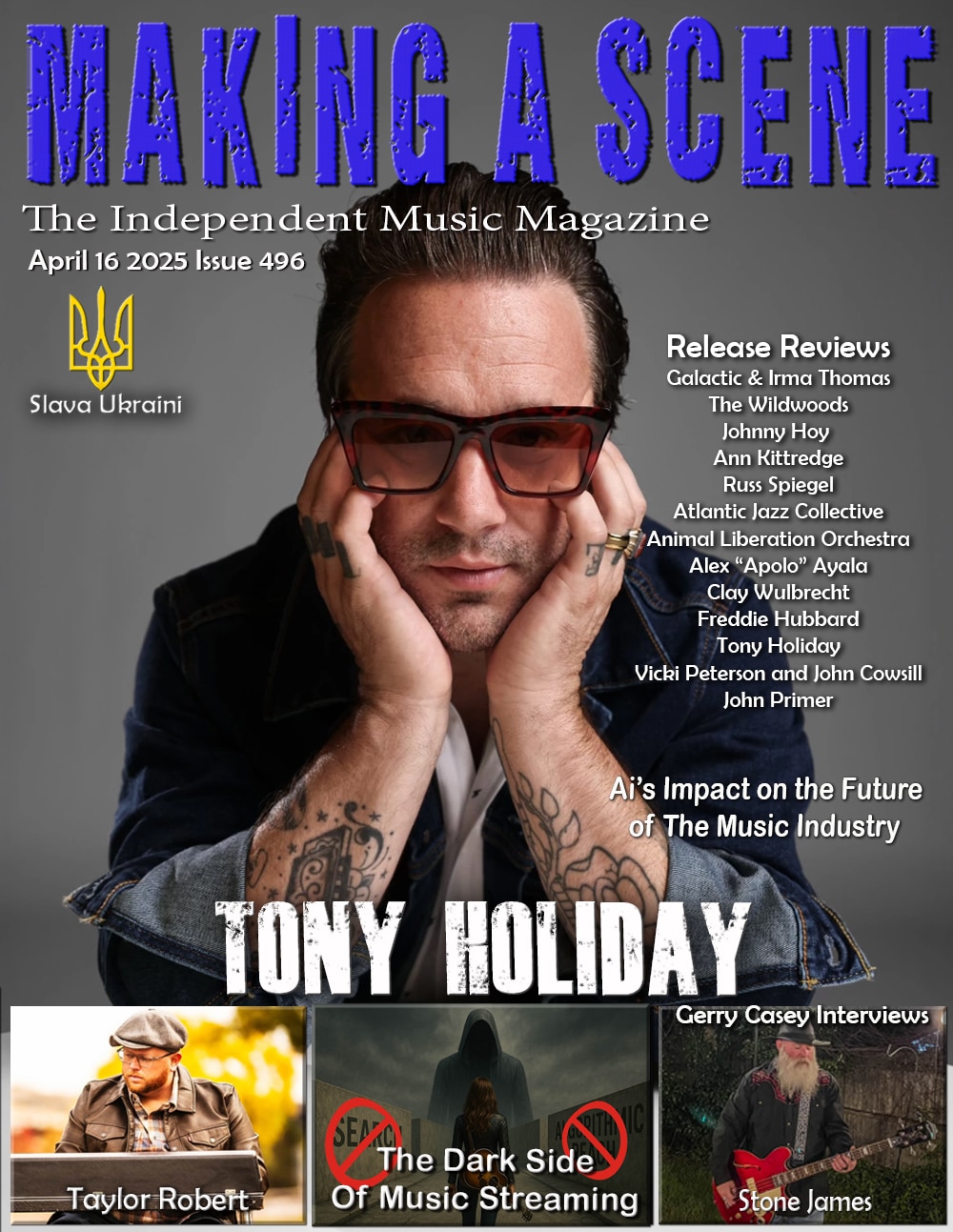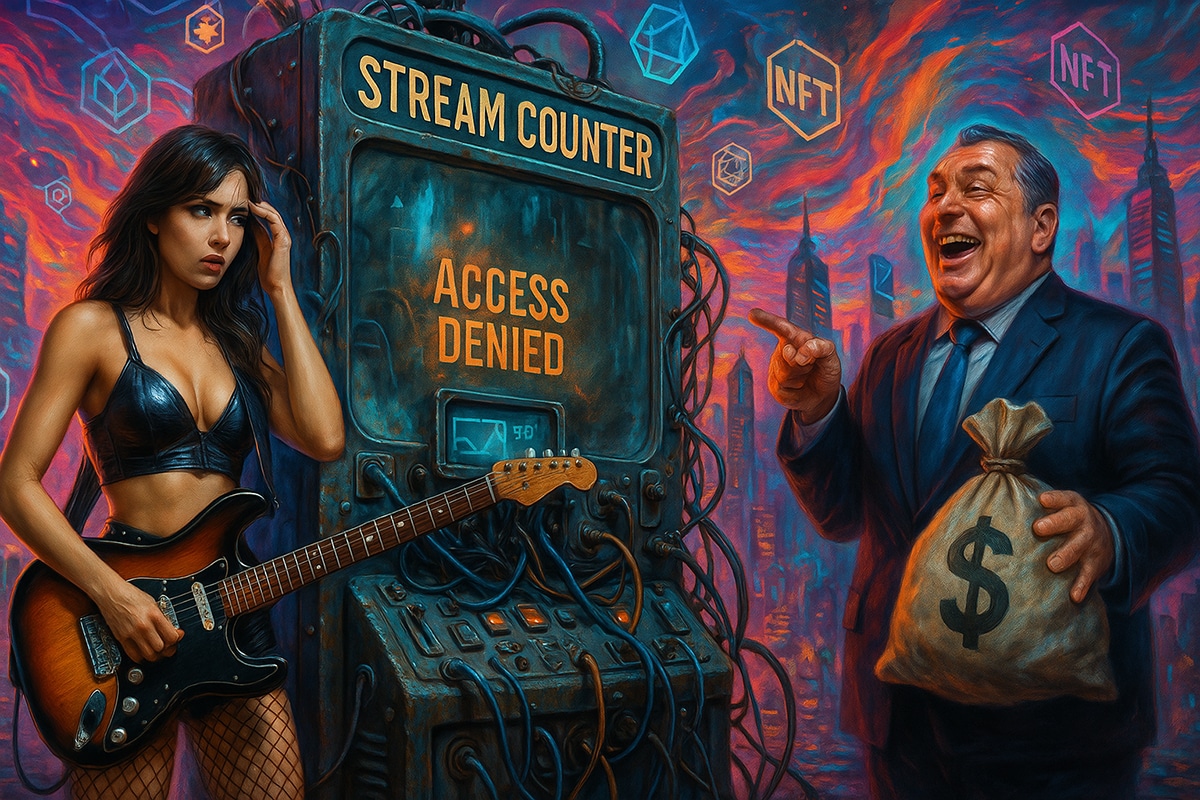Why It’s Time to Move to a Decentralized Music Industry
Why It’s Time to Move to a Decentralized Music Industry
Let’s talk about something most people never think about: how musicians get paid. It might seem simple. You listen to a song, and the artist gets some money. But the truth is, for independent musicians those who aren’t signed to big record labels it’s not that simple at all. In fact, the current system often feels like a maze full of unfair rules, hidden traps, and invisible walls. The way the music industry works today isn’t built to support most artists. It’s built to support the system itself. That’s why so many artists and fans are now talking about something new: a decentralized music industry.
So, what does that even mean? And why does it matter so much? To answer that, we first have to look at what’s wrong with how things work now.
Right now, most people stream music through big platforms like Spotify, Apple Music, and YouTube. These platforms may look simple on the outside, but behind the scenes, they run on complex systems that aren’t always fair or even honest. One of the biggest problems is the lack of transparency. Transparency means being able to see what’s really going on. But on these platforms, it’s often impossible for artists to know how their music is being tracked. They don’t get a clear view of how many times their songs are streamed, or exactly how those streams are counted. The data they do see is limited, and the rules can change without warning. This makes it hard for artists to know what they’re earning or why. Sometimes, it even feels like the numbers are being controlled in a way that helps the platforms more than the people making the music.
Another big issue is how artists get paid or don’t. For example, Spotify recently changed their payment rules. Now, a song has to be streamed at least 1,000 times in a single year before the artist can earn any money from it. That means if a musician gets 999 real plays from real fans, they still won’t get paid a single cent. Imagine working hard on a song, sharing it with your community, and getting excited that nearly a thousand people have listened only to find out that your effort still isn’t “good enough” to get even the tiniest reward. It’s heartbreaking, and it’s unfair. And the worst part? There’s no way to know if those numbers are even accurate. It would be easy for a big company to tweak the system and make it look like you didn’t reach that 1,000-stream mark even if you actually did. There’s very little a small artist can do to fight that.
But it doesn’t stop there. There’s another shady practice known as shadow banning. If you’ve never heard of it, here’s how it works: a song or an artist gets quietly hidden from search results or from the recommendation system. That means when fans look for their music, it simply doesn’t show up. The artist hasn’t done anything wrong, but their music becomes invisible. They don’t get featured in playlists. They don’t appear in “suggested for you” sections. It’s like being locked out of your own concert. And guess what? If no one can find your music, no one can play it—so once again, you don’t get paid.
All of this points to a hard truth: the music industry isn’t really about sharing music anymore. It’s about controlling attention. The big companies behind the scenes aren’t focused on helping people discover all kinds of music. They’re focused on pushing the few songs and artists they’ve already chosen to promote. They spend their time and money trying to create hype around a small number of “popular” tracks—songs that fit their idea of what will sell. It’s less about giving people real choice and more about shaping what people listen to. The goal isn’t to support music. It’s to sell products, get clicks, and make ad money.
So what’s the solution? This is where the idea of a decentralized music industry comes in. The word “decentralized” might sound technical, but the idea is simple. It means the power isn’t all in one place. Instead of one company controlling everything, the system is shared. In a decentralized music industry, artists could upload their music to platforms where the rules are clear, fair, and open. Fans could listen, and every single stream would be counted honestly and in real time. Payments wouldn’t go through middlemen who take big cuts. Instead, they’d go straight to the artist.
New technologies like blockchain and smart contracts help make this possible. These tools make sure that the system keeps its promises. Every time someone plays a song, the smart contract could automatically send money to the artist, with no tricks or delays. It’s honest, it’s direct, and it’s fair. Artists wouldn’t have to hit an impossible stream limit to get paid. If they get one play, they earn something from it. And most importantly, no one could secretly hide their music from search results or playlists.
This kind of system would also give fans more power. Instead of being told what to listen to by a company, they could explore freely and support the music they truly love. They could even invest in artists they believe in, helping them grow while sharing in their success. The relationship between fans and musicians would be more personal, more meaningful, and more equal.
In the end, a decentralized music industry is about respect. Respect for the people who create music. Respect for the people who listen to it. And respect for the idea that art should be shared and supported not hidden, twisted, or controlled.
If we want a music world that’s truly about the music, we need to change the system. We need to stop accepting platforms that don’t treat artists fairly. We need to build something better together.
The future of music isn’t about following the old rules. It’s about creating new ones. And with decentralization, we finally have the tools to make that happen.
So let’s turn up the volume on this movement. Let’s support indie artists, demand transparency, and push for a system that gives everyone a fair chance to be heard. The beat goes on, but this time, let’s make sure everyone gets to dance.
Buy Us a Cup of Coffee!
Join the movement in supporting Making a Scene, the premier independent resource for both emerging musicians and the dedicated fans who champion them.
We showcase this vibrant community that celebrates the raw talent and creative spirit driving the music industry forward. From insightful articles and in-depth interviews to exclusive content and insider tips, Making a Scene empowers artists to thrive and fans to discover their next favorite sound.
Together, let’s amplify the voices of independent musicians and forge unforgettable connections through the power of music
Make a one-time donation
Make a monthly donation
Make a yearly donation
Buy us a cup of Coffee!
Or enter a custom amount
Your contribution is appreciated.
Your contribution is appreciated.
Your contribution is appreciated.
DonateDonate monthlyDonate yearlyYou can donate directly through Paypal!
Subscribe to Our Newsletter
Discover more from Making A Scene!
Subscribe to get the latest posts sent to your email.














































